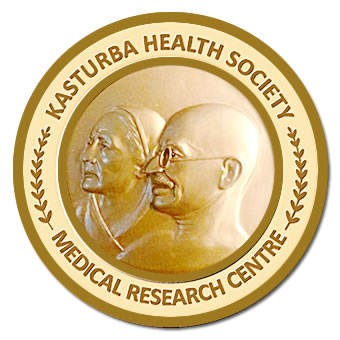Recently KHS-MRC was involved in two online events related to AYUSH. On 11th March a book on ‘History of Medicine in India’ authored by Dr R D Lele, was released through the hands of Vice-Chairman NITI AYOG, Shri Rajeev Kumar; the function was presided over by the Minister of AYUSH, Shri Kiren Rijiju; whereas the opening remarks and introduction was given by Dr Ashok Vaidya, Research director, emeritus, KHS-MRC.
Another event was on 20th April in the form of invited talk by Dr Vinod Lavaniya, research officer, CCRAS, Ministry of AYUSH, and a recipient of young scientist award in the field of literary research from AYUSH. He was instrumental in the development of ‘Namaste Portal for standardized terminologies and national morbidity codes of AYUSH systems of medicine’ as well as ‘Prakruti protocol digital tool’. Dr Lavaniya delivered his talk on 'Importance of Prakriti Assessment in Health and Disease' on 20th April 2021 at KHS-MRC Tuesday seminars.
Dr Ashok Vaidya at opening remarks of the book release on ‘History of Indian Medicine’ took an account of dynamic historiography of medicine and underlined its significance by proposing objectives; (1)To celebrate a medical tradition and trace its temporal course (2) To enhance professional understanding of the medical progress (3) To illuminate scientific advances and historical connections (4) To unearth the past forgotten pioneers of medicine (5) To renew, revive, innovate and integrate by research
He concluded his opening remarks by quoting Sri Babubhai P. Vaidya on Gujarat Ayurveda University Debate in Gujarat Legislative Assembly(1963) “…………the definition of Ayurveda would be a Shastra /Science that is with ‘the times of life’ and about life and health. As a science, it would be open to change and growth”.
On 20th April at KHS-MRC Tuesday seminar on Prakruti, Dr Rama Vaidya while welcoming and introducing the speaker made an inspirational statement “Territorial Fixation is an animal instinct, Cooperative Endeavour is humane(like family commitment), whereas Looking Far Away, expanding and pushing horizons is prophetic”. This introductory statement set the right platform and background to the speaker Dr Vinod Lavaniya to take forward his talk on Prakruti to a mix group of intersystem experts and interdisciplinary bio-medical scientists. He made the intricate subject of Prakruti very lucid and interesting with illustrations. Dr Lavaniya also shared the experiences in the process of the Prakruti assessment tool development by CCRAS. A lot of effort has been put in developing this tool from various expert individuals and Ayurveda institutions across the nation. However, this Prakruti assessment tool seems to have been developed as a product, which can be used currently specifically by Ayurvedic practitioners only.
The discussion session after the lecture reflected the enthusiasm generated in the diverse group of bio-medical experts. As per Dr Ashok Vaidya Sir's suggestion of choosing the diseased states to investigate Prakruti, bringing-in genetic and omics studies for further exploration had a direct relevance to actual clinical practice. Dr Ashish Phadke, Ayurveda consultant, stated Manas Prakruti is yet another perspective. He also enquired the availability of the Prakruti tool for other non-Ayurveda experts. Dr Jayashree Joshi wanted to know the distinction of the CCRAS developed Prakruti tool than other prevalent Prakruti protocols in the media produced by some of the commercial agencies. Dr Shobha Udupi’s question regarding Prakruti assessment of children and aged is another challenge for the developed Prakruti assessment tool. Dr Surbhi Khemka, Homeopath consultant, found the lecture particularly interesting due to commonalities she found in prakruti and assessment of constitution in Homeopathy. Dr Anushree Mehta, Diabetologist, was enthusiastic to understand the assessment of the invariable nature of Prakruti during illness. Dr Lavaniya’s views on application of Prakruti assessment for career counselling also developed lot of interest. Dr Rama Vaidya inquired about possibility of training the educational counsellor for Prakruti assessment with the developed digital tool. Dr Ashwinikumar Raut in a concluding remark while thanking the speaker also stated that this tool is an illustrious translation of the 'classically conceptualized Prakruti axiom' into a 'contemporarily computerized moderately-validated tool'; paradoxically however, the tool becomes a 'product' and the practitioner becomes an ‘end-user’. He pointed out the scope for ongoing R&D for bringing-in more objectivity, contemporary clinical applicability, and adaptations of scientific progress in such an endeavour.
